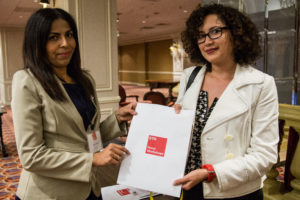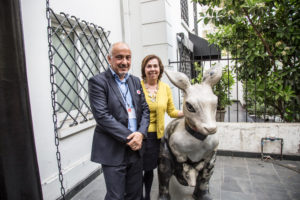How To Address Reservations Regarding Agents
Yesterday we shared with you the 5 most common reservations university stakeholders have about student recruitment agents.
All of these reservations are indeed solid. They often stem from extensive previous experience or current knowledge of the university as well as the international education industry. Sometimes, of course, they come as a result of emotions, and not of facts. In any case, we want to discuss each of them in more detail. Hopefully, this will you some points for discussion you can use in real life.
So, let‘s take one more look into each of them in more detail!
The university doesn‘t actually need recruitment agents, because there is the international office in place
Well, this is true. International offices are in charge of international student recruitment, indeed. However, they are also responsible for preparing information materials, gathering data and surveying current students, arranging events, providing consultancy, contributing to strategies, preparing reports and organising open days.
We believe that delegating one item from this extensive list will allow international offices to be more efficient. After all, building a more inclusive environment, launching new initiatives and focussing on current students is what lays the foundation for future growth.

The university is not ready financially to hire an agent
This argument seems to be true as well, right? After all, agents get a commission and sometimes also a certain fixed monthly remuneration. Not to mention the costs that come with the management of this relationship: human resources and working hours. That is why, at first glance, the costs seem to outweigh the benefits. But is it really this way? What exactly are international student recruitment agents bringing on the table?
Sure, investing into agents may seem to be a bit over the top in certain contexts. However, take a moment to think about the keyword here – „investment“. As we’ve discussed before, international students are a huge source of revenue for institutions and local economies. Even if hiring an agent may look like a financial burden at first, it all changes when you see the results. It takes a professional to enjoy a steady source of income, a viable long-term strategy and a diverse campus.
Current recruitment techniques seem to be working pretty well and the university already has its international students
Definitely, the international office is working hard to attract the right kind of international students. They are strong in their field, capable of learning fast and fit the university profile.
However, agents can put something different on the table. They follow current trends in international student recruitment and work on the diversification of your student body. Moreover, they make sure that students who come to the university will stay, and there will be no surprises or unsteady sources. Markets are constantly changing, and today’s big players may not be so big tomorrow. The more target markets you are able to identify, the better.

Agents have a questionable reputation and can provide poor service
It is true that some international student recruitment agents manage stain the profession’s reputation with certain unprofessional practices. Asking for commission fees both from the university and the student is just one example of such unethical conduct.
Ensuring full transparency in the relationship can help identify unprofessional agents and eliminate the issues they can cause. After all, the university’s goal is to have a diverse student body that is living and studying in an inclusive environment. The goal of the agent is to connect the university with the right students and vice versa. Publicity and transparency are the best weapon against negative practices. Making sure you double check references and recommendations is a big step in the right direction.

Agents are unnecessary because the university sends abroad international office staff to research various emerging markets
This is closely related to the first objection. If the international office is doing this job anyway, why bother and spend much needed resources for external services?
Well, because a professional with 8-15 years of experience is always able to bring more to the table than a person who is doing the task alongside many other tasks. Making surveys, collecting and analyzing data, visiting countries and talking to students and families is a full time job. It requires specific training, experience and even a certain attitude. That is why we believe international student recruitment agents exist in the first place.
What do you think? Do you have experience handling stakeholders’ reservations about use of agents? Let us know in the comments below!










































